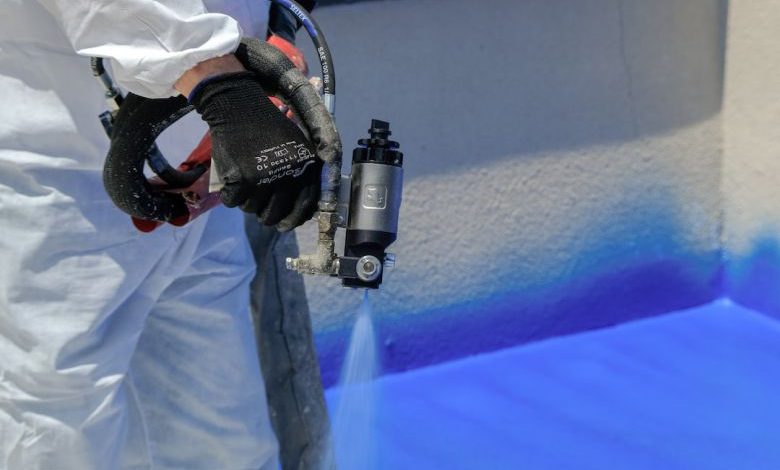How Does a Spray Foam Insulation Work?

Spray foam insulation is a popular choice for homeowners and builders looking to improve energy efficiency and reduce heating and cooling costs. But how does it work? In this article, we will explore the science behind spray foam insulation and explain why it is such an effective choice for insulating homes.
What is Spray Foam Insulation?
Spray foam insulation is a type of insulation that is applied using a spray gun. It is made up of two main components: polyurethane and isocyanate. When these two components are mixed together, they undergo a chemical reaction that causes them to expand and harden. This expansion allows the foam to fill in gaps and cracks, creating a tight seal that helps to keep air and moisture out.
Expanding to Fill Every Nook and Cranny
One of the key advantages of spray foam insulation is its ability to expand and fill in every nook and cranny. Unlike traditional insulation materials like fiberglass or cellulose, which can leave gaps and spaces, spray foam insulation expands to ensure a complete and seamless coverage. This not only improves the energy efficiency of a home but also helps to reduce drafts and improve indoor air quality.
Air Sealing Properties
In addition to its ability to expand and fill gaps, spray foam insulation also has excellent air sealing properties. The foam forms a continuous barrier that helps to prevent air leakage, which is a major cause of energy loss in homes. By creating a tight seal, spray foam insulation helps to keep conditioned air inside and prevent unwanted air from entering the home. This can result in significant energy savings and improved comfort for homeowners.
Moisture Barrier
Spray foam insulation is also an effective moisture barrier. The foam is impermeable to water and can help to prevent moisture from entering a home. This is particularly important in areas that are prone to high humidity or where there is a risk of water damage, such as basements or crawl spaces. By creating a moisture barrier, spray foam insulation can help to prevent mold growth and protect the structural integrity of a home.
R-value and Energy Efficiency
The R-value is a measure of how well an insulation material resists heat flow. The higher the R-value, the better the insulation. Spray foam insulation has a high R-value, which makes it an excellent choice for improving energy efficiency. The foam’s ability to expand and fill gaps also contributes to its high R-value, as it helps to minimize heat transfer through conduction and convection.
Soundproofing Properties
In addition to its thermal insulation properties, spray foam insulation also has soundproofing properties. The foam’s dense structure helps to reduce noise transmission, making it an effective choice for homeowners looking to create a quieter and more peaceful indoor environment.
Professional Installation
While spray foam insulation offers numerous benefits, it is important to note that professional installation is required. The chemicals used in spray foam insulation can be hazardous if not handled properly, and the application process requires specialized equipment and training. Therefore, it is recommended to hire a professional insulation contractor who is experienced in installing spray foam insulation.
Conclusion: An Effective and Versatile Insulation Solution
Spray foam insulation is a highly effective and versatile insulation solution that offers numerous benefits for homeowners. Its ability to expand and fill gaps, combined with its air sealing and moisture barrier properties, make it an excellent choice for improving energy efficiency and indoor comfort. Additionally, its high R-value and soundproofing properties further enhance its performance. However, it is important to remember that professional installation is necessary to ensure optimal results. So, if you are considering insulating your home, spray foam insulation is definitely worth considering.




